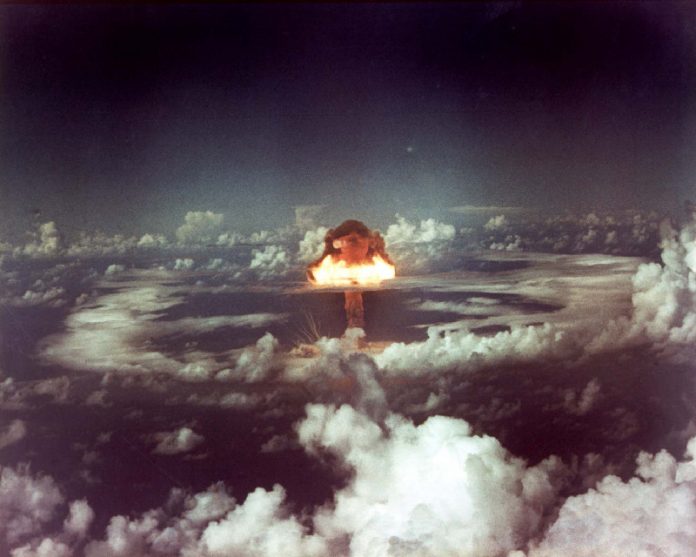(THIS ARTICLE IS MACHINE TRANSLATED by Google from Norwegian)
President Trump has announced that the United States is withdrawing from the INF agreement, which since 1987 has prevented the deployment of medium-range missiles in Europe. It is then a paradox that Europe is the only continent where the majority of countries have so far not supported the UN nuclear ban.
Nor is the Norwegian government and the parliamentary majority particularly enthusiastic about the nuclear weapons ban. This is contrary to our obligations to NATO, says Erna Solberg. So does the Labor Party, despite the fact that, through government cooperation with the SV and Sp, the party actually took the initiative in the process that led to the ban.
When Trump disregards Europe, the question is: Which country will be the first NATO country to break Trump's loyalty? It could be Spain. The way it will happen may be interesting for Norwegian accession.
The Spanish Socialist Party's Prime Minister Pedro Sánchez was completely dependent on the Podemos party to get a majority for a state budget for 2019. In a meeting between Sánchez and Podemos leader Pablo Iglesias in September last year, the two agreed on a number of demands that Podemos made to vote for the budget. In between agreeing to create a museum for victims of Franco-fascism and a new school loan system for poor families, we find item 4: Spain will sign nuclear agreement ban.
However, nothing has been agreed on when this will happen. And it has been completely silent on this point from the government since the agreement was signed. We must assume that the pressure from the United States is great.
There are no legal obstacles to Norway joining the ban on nuclear weapons.
Both in Spain and in Norway, there is a consensus that there are no legal obstacles to joining the ban. Nuclear weapons are not mentioned in the original NATO agreement, the Atlantic Pact. Nuclear weapons were also not mentioned in the first strategic concepts. But Solberg and NATO Secretary General Stoltenberg are right that today's strategic concept rests on the possibility of nuclear weapons. If this agreement is broken, it will be very negatively perceived in the United States. At the same time, Norway and other NATO countries have already made reservations in the sense that we do not allow the storage of nuclear weapons on our territory during peacetime.
At the last parliamentary election, SV posed as a requirement to give an AP government their support that they should support the nuclear weapons ban. Continued pressure on bans could help the SV re-establish the requirement after the next election. For both Spain and Norway it is an option to sign the ban, but spend time ratifying it. Signing is a message to the other NATO countries that NATO should change its nuclear weapons policy. It will be an important signal even if one will spend time incorporating the ban into its own legislation.
157 of the world's countries have either signed, ratified or voted for the nuclear ban. NATO's nuclear policy is adopted in the US Congress, in the British and French parliament. The majority of the world's countries believe that the nuclear powers of the great powers contribute to increased uncertainty, but they are not allowed to decide. The ban will not help to remove nuclear weapons overnight, but will help increase marginalization and not increase status. This may contribute to pressure on disarmament agreements. Support for the nuclear ban should therefore be Europe's answer when Trump and Putin want to revoke the INF agreement.


